This guest post was written by John Hanna. John is an American/Palestinian, originally born in Nazareth and now based out of Nashville, TN. He has been living and volunteering in Palestine for the past year in an effort to rediscover his heritage and come to a clearer understanding of the ongoing conflict. John graduated in 2012 from Belmont University in Nashville, TN with a Bachelor of Arts in Religious Studies and a Minor in Philosophy. He currently has plans to return to the States in pursuit of a doctorate in psychology (unless he postpones that to live on a farm) while remaining politically active for justice in Palestine.
John writes:
I want to express my own feelings and thoughts on the current escalation of violence here in Palestine/Israel, but (and it’s highly encouraging) there has been such a flurry of articles and videos showing up all over the web informing people about the truth here, I sometimes wonder if I have anything to add. I think I do. And at the very least, I have an opportunity to communicate directly to my family and friends all over the world who may not be as privy to alternative media sources disrupting the mythical narratives of mainstream propaganda machines that distort the reality I live and breathe in Palestine.
Let me start by answering a question many of you have asked me since the missiles started flying: I am okay.
I am currently living in Bethlehem, which is located in the West Bank about five miles south of Jerusalem. Aside from nightly demonstrations taking place near the annexation wall on the north side of town, the daily routines and scenes of my life remain unchanged. I feel no immediate threat from the violence rising between Israel and Gaza. But I do feel sadness, anger, and frustration knowing mothers, fathers, and their children are needlessly dying in a war based on greed and racism less than an hour’s drive away. Do not be concerned for me. Be concerned for the people of Gaza.
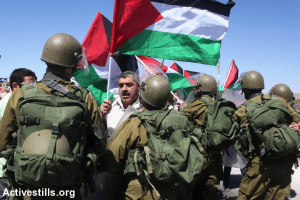
This most recent outbreak of conflict is but another symptom of the issue that lies at the root of all conflicts in the Holy Land: Israeli Occupation. To understand why Hamas is motivated to make clearly futile attempts at damaging Israel by launching homemade rockets – attempts painfully analogous to the Palestinian children who throw rocks at Israeli tanks – one must recognize the sixty-six years of ethnic cleansing and systematic oppression that has plagued Palestinians since the creation of the Jewish State. Without knowing the historical context, any effort to make sense of today’s bloodshed is made in vain. Yet a heavily biased, inflammatory, non-contextual approach to the conflict is what most of us are presented through mainstream media.
At the core of the Jewish State is the ideology of Zionism. I’ll share my summary of its history and the creation of Israel from a previousarticle:
“Zionism is a movement that began at the end of the nineteenth century, which nationalized the Jewish people and declared Palestine their rightful homeland. Proponents of Zionism successfully motivated the Jewish colonization of Palestine, and, by end of the Second World War, Jewish immigrants constituted one-third of the area’s total population. Under the leadership of David Ben-Gurion, who went on to become Israel’s first Prime Minister, these Jewish settlers sought to capture and control as much of Palestine with the lowest number of remaining Arabs as possible.
On 10 March 1948, the Zionist leadership implemented its Plan Dalet to ethnically cleanse the country. The mass expulsion of Palestinians from Palestine was not a spontaneous consequence of retaliation or war, but rather a premeditated, coldly calculated program that had been formulated as an official Zionist strategy as early as 1937, eleven years before Israel was established. Israel’s second Prime Minister, Moshe Sharett, made the Zionists’ intentions clear: ‘We have forgotten that we have not come to an empty land to inherit it, but we have come to conquer a country from people inhabiting it.’ Prior to any conflict between Zionist forces and the Arab world, over 300,000 Palestinians had already been expelled from their homes and were subject to searches, seizures, executions and massacres such as that of Deir Yassin, a village of nearly 700 people, where Jewish paramilitary forces murdered over one hundred men, women and children. Due to the fact that most of Palestine’s leadership had been destroyed or expelled and their defensive capabilities disabled by the British in response to the 1936 Arab Revolt, Palestinians were left severely vulnerable to Zionist opposition.”
For many Jews, Zionism was the answer to the suffering they faced in Europe and elsewhere in the world. It promised a safe haven for the Jewish people, a place to call home where they could live without fear of anti-Semitic prejudice and persecution. This aspiration in and of itself is admirable. Yet the way Zionists implemented their plan amounts to deep hypocrisy. In fulfilling their dream of security and freedom, they threw the Palestinian people into a nightmare, dispossessing them of their land, their rights, and their dignity. When anyone questions Israel’s legitimacy, clichéd responses regarding the holocaust are quick to the fore. But one tragedy does not justify another. As Ilan Pappe, the Israeli historian, has put it: Imagine rescuing a battered women from her abusive spouse, taking her from her home to another’s, and kicking that family out so the suffering woman can find peace and solace in a new home. Is that just?
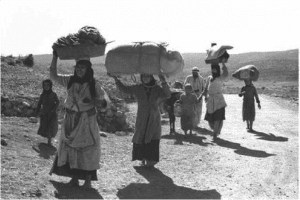
When Israel was established in 1948, 750,000 Palestinians, half of the total population at the time, fled or were forcibly removed from their homes. And those who were able to remain effectively became second-class citizens within the boundaries of an ethno-centric state. Those realities remain true today. The progeny of Palestinian refugees number around five million and still have no right to return to their homeland (in stark contrast to Israel’s Law of Return, allowing any Jew to gain immediate citizenship upon entering Israel). Palestinians in Israel suffer inequality institutionalized byat least fifty discriminatory laws. Those in the West Bank live under the shadow of a growing annexation wall that stands 25 feet tall and will extend 403 miles upon completion, over 50% of their land is occupied by nearly half a million Zionist settlers residing in over 200 settlements declared illegal under international law, and they remain subject to the capriciousness of Israeli military rule that goes so far as to imprison and torture children. And in Gaza, we are now witnessing the latest wave of atrocities Palestinians have come to face under Israeli rule, with a civilian death toll that has risen to 1000 — nearly 200 children — and continues rising as I write this. These atrocities mirror those enacted by Zionists sixty-six years ago to systematically cleanse historical Palestine of its indigenous population. Zionism has persisted with unwavering strength through Israel’s racist and belligerent policies toward Palestinians. Violence is at the heart of Zionism, and Zionism is at the heart of Israel.
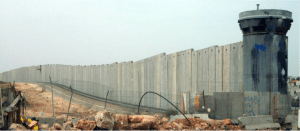
Philosopher George Santayana’s ubiquitous sentiment that, “Those who cannot learn from history are doomed to repeat it,” is epitomized by Israel’s failure to come to terms with its illegal occupation as the root cause of all the resistance it faces. To consider only recent history, in the past five years Israel has carried out three major offenses against the people of Gaza and the situation has only gotten worse. Israel continues to isolate itself among the international community, provoke continued violence from Hamas, and inflame tensions with the Palestinians inside its borders and in the West Bank who are bound to erupt under persistent persecution.
This latest round of conflict arguably began when three Jewish teens were kidnapped in June. Israeli officials had known almost immediately that they had been killed. Yet this information was suppressed and a gag order for the press commissioned. The Israeli Prime Minister immediately claimed that Hamas was behind the kidnappings, despite no evidence ever suggesting this, and his officials have now admitted that the kidnappers were acting alone. But merely making the claim was enough. Netanyahu’s government incited a wave of violence and racism across the land and had the pretext it needed for a massive military crackdown in the West Bank. As Israeli soldiers “searched” for the missing boys over the following weeks, nearly 800 Palestinians, purportedly associated with Hamas, were arrested, many being political prisoners that had recently been released by Israel during so called peace negotiations with the Palestinian Authority. A large number of the arrests were made under “administrative detention,” i.e. legalized kidnapping. When taken into administrative detention, no charges are ever presented or required, and the detained individual is never seen in front of a judge. In addition to arrests, Israel had “killed nine civilians and raided nearly 1,300 residential, commercial, and public buildings.” After this assault on Hamas and the Palestinian people, Hamas started what was claimed to be an “unprovoked” attack on Israel.
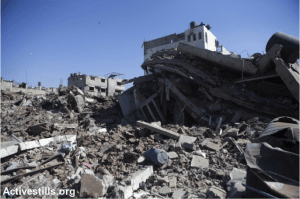
Israel is the occupying power, and as such it is incumbent upon the state to resolve this decades-long struggle by ending these provocations, these disproportionate and collective punishments for the actions of a few – in this case, the kidnappers – and by ultimately dismantling the entire infrastructure of occupation that strips Palestinians of their rights. Until this happens, the international community must recognize the right of Palestinians to actively resist injustice. The world must know victim from victimizer, and take action on both sides by supporting the Palestinian people and imposing sanctions on Israel until it conforms to internationally recognized standards of conduct.
Unfortunately, mass media is far from portraying the power imbalance that characterizes the conflict. Far too many news agencies utilize rhetoric that connotes an equal struggle on both sides. Or, especially in American media, audiences are simply presented Israel’s side with facile arguments for Israel’s right to defend itself against “terrorist” attacks. It is this word, “terrorist,” that is used so freely in our post-9/11 world to belie reality and manipulate popular opinion by appealing to the fears of listeners rather than their minds. It is a word that dehumanizes the victims of occupation, turning all of them into bearded bogeyman, and distorting what would otherwise be seen as a just struggle against severe oppression.
The Gaza Strip is one of the most densely populated places on the planet. 1.7 million Palestinians reside in 141 square miles of land, and in this strip of land every aspect of Palestinians’ lives are monitored and controlled by Israeli forces. Nothing can move in and out, whether people or supplies, without Israel’s consent, leading to food insecurity, water shortages (50% of Gazans have no access to potable water, and over 90% of the total water supply is unfit for consumption) and the mass psychological trauma that comes with living under siege. By no choice or actions of their own, Palestinians in Gaza are forced to live in a de facto open-air prison.
Why do Israel and its allies expect Gazans to accept these deplorable conditions of life, conditions enabled by Israeli policies that are tantamount to crimes against humanity, without resistance? How can they continue insisting that “terrorists” are using human shields (aside from their being absolutely no hard evidence for this claim) when every man, woman, and child in Gaza is forced by Israel to remain like fish in their proverbial barrel while IDF forces continue their indiscriminate onslaught? After witnessing the killing of four Gazan boys who were playing soccer on the beach, New York Times journalist Tyler Hicks wrote, “There is no safe place in Gaza right now. Bombs can land at any time, anywhere.” Considering these conditions, it is no surprise that 80% of all Gazan deaths are civilians, and significant proportion of them children. Israel has no excuse for the slaughtering of innocents.
In the documentary, “Peace, Propaganda, and the Promise Land,” Noam Chomsky, a prominent Jewish scholar, states:
“When Israelis in the occupied territories now claim that they have to defend themselves, they are defending themselves in the sense that any military occupier has to defend itself against the population they are crushing. You can’t defend yourself when you’re militarily occupying someone else’s land. That’s not defense. Call it what you like, it’s not defense.”
The reality to which Chomsky speaks is what Israel and the world must come to terms with. Israelis are the colonizers, Palestinians the colonized. As an occupied people, Palestinians are in a constant state of defense, whereas Israel as the occupier is offensive in whatever action it takes against Palestinians, including its sustained existence as a Jewish State.
Much of the Western world is invariably involved with the Palestinian/Israeli conflict in ways that facilitate the Israeli occupation, but no other country provides greater support to Israel than the United States. Adjusting for inflation, the U.S. government has funded Israel with $277.3 billion since its inception – an ever growing number with our annual contribution of over three billion dollars. Much of this money is provided unconditionally, and most of it is poured into Israel’s military apparatus. Additionally, the U.S. provides unconditional political support to Israel. On 23 July, the UN Human Rights Council passed a resolution to investigate Israel’s human rights violations in Gaza. Of the 47 Council Members, 17 abstained, 29 voted in favor, and only one country cast a dissenting vote – the United States.
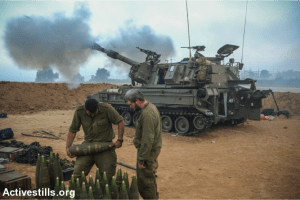
This financial and political backing has implicated the U.S. government and all of its tax-paying citizens in Israel’s crimes, including the ongoing collective punishment of Palestinians in Gaza, condemned by various international organizations such as The Human Rights Watch. Among the wreckage of homes, mosques, schools and hospitals, Israel has added a UN Shelter to its list of destroyed targets, killing sixteen Palestinians and injuring 150 more. It is clear: Israel is not defending itself. Israel is not fighting a war. Israel is acting out a massacre, one that would not be possible without the sustained support of the United States.
As an American who is also Palestinian, I am asking fellow Americans to join me in pressuring our government to cease its blind loyalty to a country that carries out crimes against humanity, persistently defies international law, and causes us to contradict our own foreign policy, namely:
a. the US Foreign Assistance Act of 1961 which prohibits giving assistance to the government of any country which engages in a consistent pattern of human rights violations;
b. the U.S. Arms Export Control Act of 1976 which prohibits using U.S. weapons against civilians and civilian infrastructure, and
c. the U.S. foreign policy insofar as it pertains to recommendations for steps toward peace, in this instance, between Israelis and Palestinians.
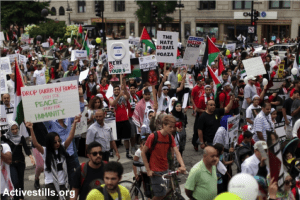
I am encouraged by pro-Palestinian protests flaring up across the nation, in almost every major city, including my hometown of Nashville. I urge you all to continue demonstrating for justice and others to add their voices. But walking arm in arm down our city streets draped in keffiyehs and waving Palestinian flags is just one of many ways we can create change. We must educate others by organizing lectures, sharing articles and videos on social media, and publishing our own writing online and elsewhere. We must put direct pressure on our representatives by writing letters, emails, and making phone calls to our congressmen and senators (the Presbyterian Mission Agency has made this easy with a prepared form). And one of the fastest growing, most effective ways to bring about justice is through the Boycott Divestment and Sanctions movement. This kind of non-violent, economic attack contributed significantly to ending the racist apartheid regime of South Africa, and is well on its way to doing the same in Israel.
If peace is to come to the Holy Land, then Israel’s occupation of Palestine must end, and a viable political solution must be drafted and implemented. Unfortunately, history has taught us that those of privilege and power do not willingly concede their position without pressure or force. American citizens, and citizens of any government complicit in Israel’s crime, must demand their leaders to end support of the Jewish State unequivocally until it agrees to cease its colonial occupation and provide equal rights to all Palestinians. Until then, Palestine will resist.